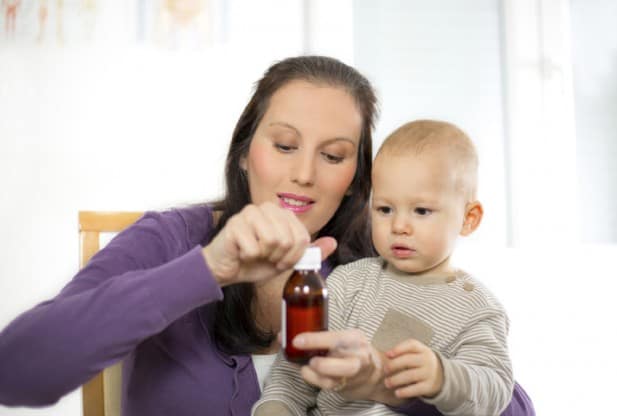
According to a study published in the journal Pediatrics, medication mistakes among young children occur more frequently than some would imagine. The study, which was based on calls to poison control hotlines, found that a medication mistake occurred in a child roughly every eight minutes from 2002 through 2012. The authors state that medication mistakes […]
 According to a study published in the journal Pediatrics, medication mistakes among young children occur more frequently than some would imagine. The study, which was based on calls to poison control hotlines, found that a medication mistake occurred in a child roughly every eight minutes from 2002 through 2012. The authors state that medication mistakes can lead to injury and sometimes death, in addition to increasing healthcare spending.
According to a study published in the journal Pediatrics, medication mistakes among young children occur more frequently than some would imagine. The study, which was based on calls to poison control hotlines, found that a medication mistake occurred in a child roughly every eight minutes from 2002 through 2012. The authors state that medication mistakes can lead to injury and sometimes death, in addition to increasing healthcare spending.
Researchers saw an increase in the rate of reported medication errors during the 11-year time frame of the study. The exception to this was cough and cold medicines. Henry Spiller, an author of the study and director of the Central Ohio Poison Center at Nationwide Children’s Hospital in Columbus, told Reuters Health that this decrease was preceded by a multipronged campaign to reduce the use of these products in children. The findings suggest that education has been successful in this effort. “We think that multipronged effort had an effect,” said Spiller to Reuters Health. “We can see a drop associated with these efforts.”
The study involved data on medication errors reported among children younger than six years between 2002 and 2012. This information was obtained through the National Poison Database Systems, which keeps a record of calls made to all 55 poison control hotlines in the United States. Medication errors occurred in 63,358 children on average each year of the study. In other words, there were about 27 medication errors out of every 10,000 children. Medical attention was not required in most cases, but medication mistakes did lead to the deaths of 25 children.
Pain medications, such as aspirin, accounted for the greatest number of medication mistakes. The second-most common were mistakes with cough and cold medicines and allergy medicines. Roughly one-fourth of the mistakes occurred in infants under one year of age. Errors became less frequent as children got older.
In a phone interview with Reuters Health, Spiller said that parents and caregivers should stop and think before giving medication to children. “This is when a lot of these medication errors occur – during these distracted periods,” he said. “If you just take a moment, you can kind of save that mistake,”
Senior author Dr. Huiyun Xiang said the reduction in cough and cold medication errors can have important implications for education. “A similar case can be made against the routine use in young children of other medications that are frequently associated with errors, like analgesics,” he wrote to Reuters Health. “Parents and caregivers can do their parts by using smart phone apps to schedule and track medication doses and by using measuring cups provided with liquid medications to give accurate doses,”


